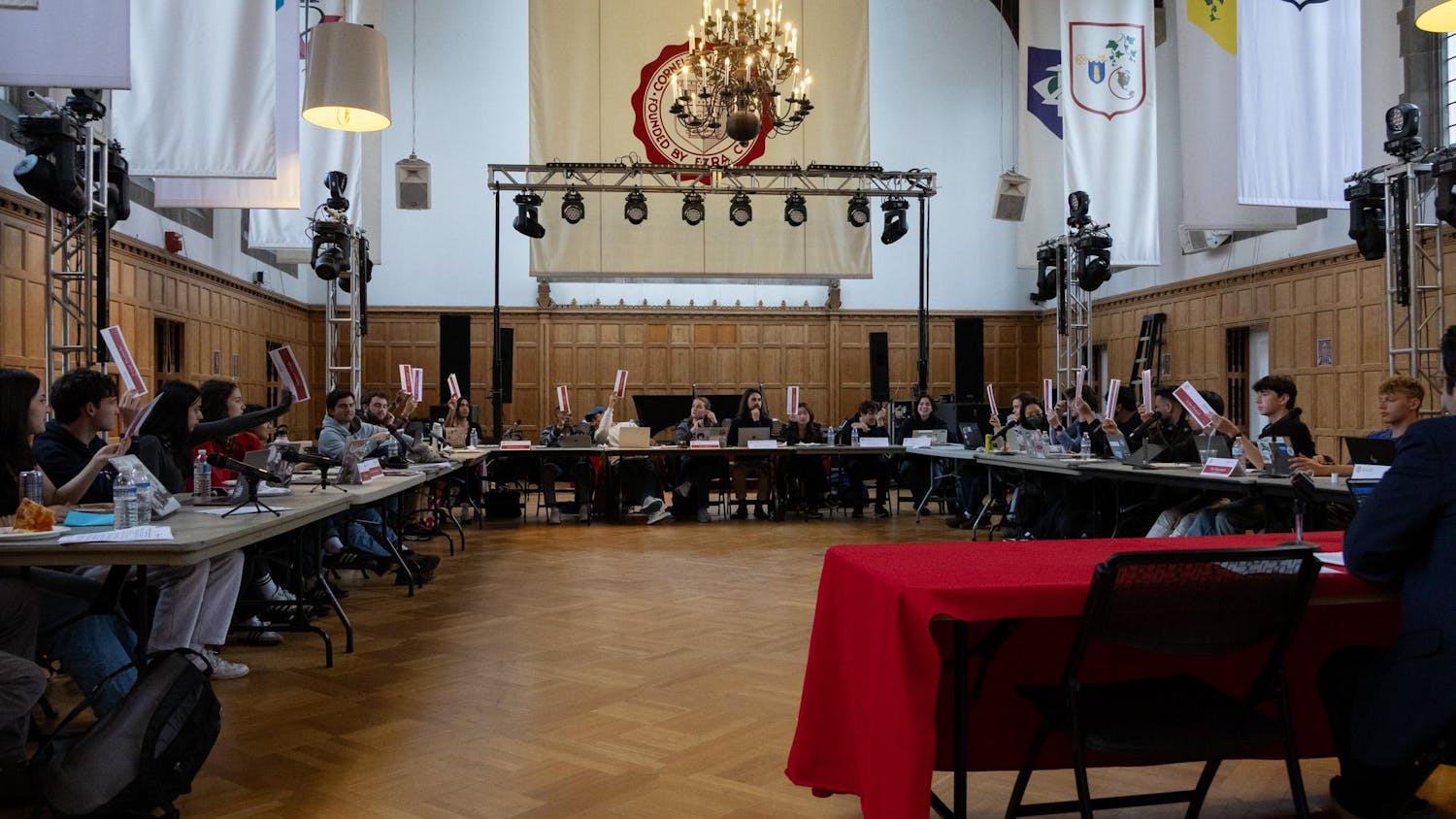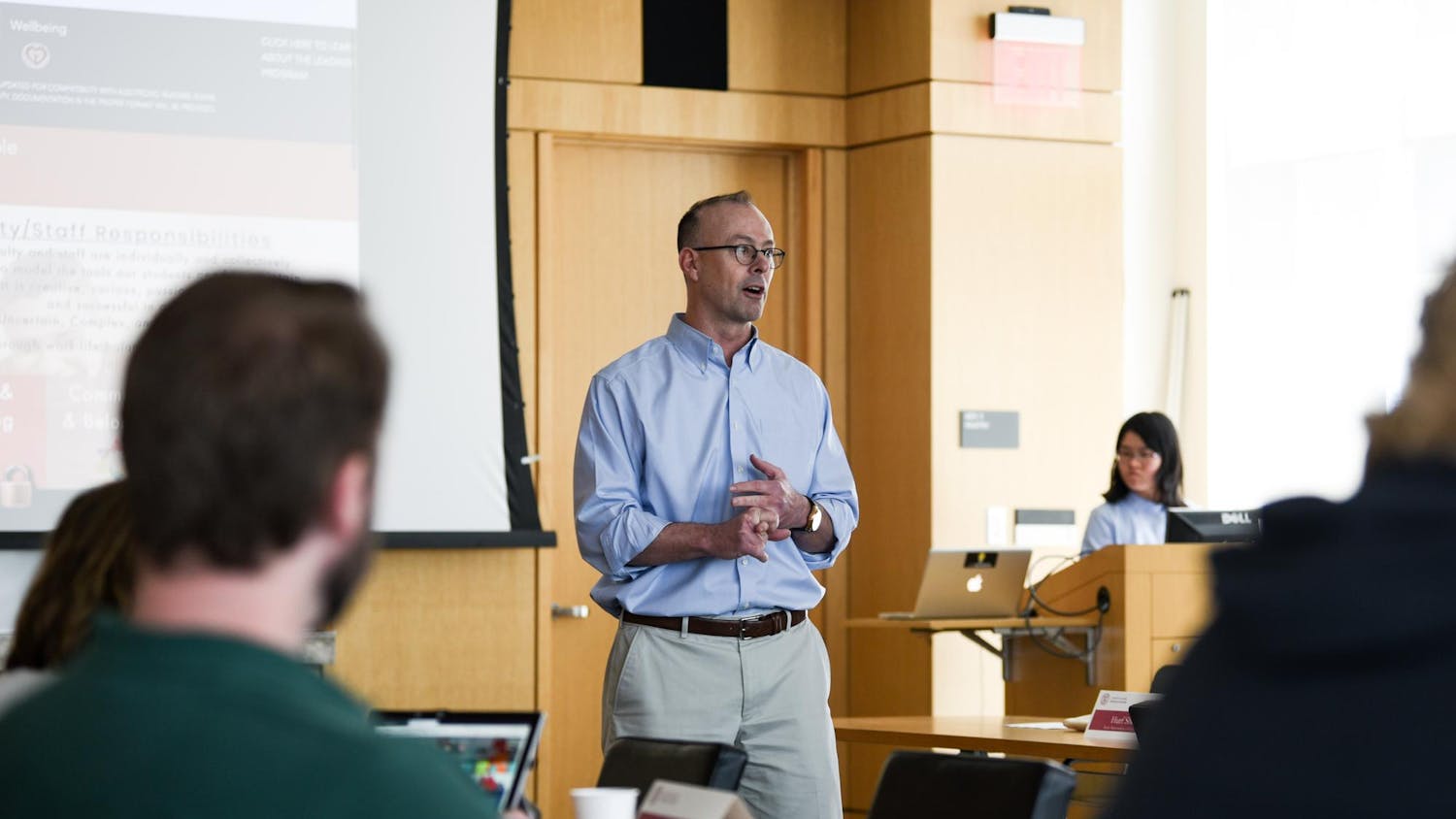While Cornell was able to largely avoid the Bernard Madoff ponzi scheme that cost other universities millions of dollars in losses, Cornell’s finances were not invulnerable to the economic meltdown that has gripped the country. According to The Cornell Alumni Magazine, Cornell’s endowment, which was valued at $6.1 billion on June 30, 2008, fell 27 percent during the second half of 2008. Executive Vice President for Finance and Administration Stephen Golding in an interview on CNBC, considered the current economic status “the perfect financial storm.” He explained the complexities and the uniqueness of the current situation by adding, “This is a much broader problem with many more components at one time than what many of us have historically seen.” He attributed much of Cornell’s current financial strain to the “freezing up of the capital markets [that] has had tremendous implications for our debt portfolio; liquidity [and cash flow problems have] had an impact on our ability to operate.” Following the drastic stock market decline, Golding said that some University investments would be maintained with the expectation that they would eventually return to their previous levels. Golding said there were other investments, which the University did not believe would return to their levels before the stock market decline. Those investments were pulled out in order to enerate more cash and liquidity. In Cornell’s 2007-2008 Financial Plan Year End Report, The Investment Committee of the Board of Trustees stressed Cornell’s commitment to maintaining a diversified portfolio. Cornell’s top three investments were found in Hedged Equities at 19.1 percent, Real Assets at 14.6 percent and foreign equities at 13.9 percent. No matter how sound its investment strategies or how confident The Investment Committee was of retaining positive returns, Ron Ehrenberg, the Irving M. Ives Professor of Industrial and Labor Relations, said this is “the sort of environment where no matter what you do you will be losing.” According to CNBC, many of the top universities across the country have reported losses of at least 25 percent in their endowments. With Bloomberg reporting that 14 percent of Cornell’s operating budget comes from its endowment, the University has been forced to make plans to change the way it operates in order to cut expenses wherever possible. In an interview with Bloomberg, President David Skorton said, “We’re throttling back our expenditures. We’re going to need a 10 percent correction in our budget in the next three to five years.” To make those necessary changes, Skorton said that Cornell would have to continue to look for ways to increase revenues while cutting back spending. He said the University would look into borrowing money and laying off employees to achieve those goals. Golding noted in the CNBC interview that in addition to looking for ways to limit and manage expenditures, Cornell is also focusing on “investment strategies as we look to the recovery of the market and positioning the endowment to be able to take advantage of those opportunities.” Before reinserting some of their capital assets and investments in the market, Golding said the Investment Committee was looking for a sign that the market had bottomed out. [img_assist|nid=34221|title=Endowment Losses in the Ivies|desc=|link=node|align=left|width=|height=0] One of the challenges facing the University with the endowment loss is the endeavor to mitigate the effect of the loss on students. While it is too early to tell the overall nature of the loss especially its effects on students, Golding said that there is the definite potential for students to be affected through the cutting of programs, a decrease in budgets and possibly a strain on financial aid. To combat the financial losses sustained during the current economy and try and limit the reach of their effects, Skorton, in his 2008 End of Year Message, highlighted three issues that must be addressed. “The reduction in distributions from investment earnings that support the University’s operating budget, the deficit in the annual operating budget — caused by state budget cuts, increased debt service for capital projects and reduced overhead on grants and contracts — and the need for even more financial aid at a time of great economic stress for our students and their families.” All units throughout the University have been assigned the task of scouring their operations in an effort to find any areas in which expenditures can be reduced. Some of the means of limiting expenditures that are being considered include “savings through institutional cost-efficiency actions, unit budget reductions and tuition increases,” Skorton wrote. Even though tuition increases are being considered, Skorton has maintained his pledge to enhance financial aid. “Our most recent financial aid initiative, announced … in the midst of the economic turmoil, [will] make it possible for our neediest students to graduate debt free, and to help their families by eliminating parental contribution for students from families with incomes below $60,000. In the years ahead, we will continue to develop an even more robust revenue stream for financial aid by raising an additional $125 million as part of our overall ‘Far Above’ campaign, which exceeded its midpoint this year, thanks to the generosity of our alumni and friends,” Skorton wrote. Even though the financial crisis will hinder Cornell’s ability to operate at its desired highest level for an indeterminate amount of time, Golding maintained that Cornell has the right people and the right setup to be able to recuperate from this severe financial strain.
C.U. Sees Endowment Decline by 27 Percent
Reading time: about 5 minutes
Read More










